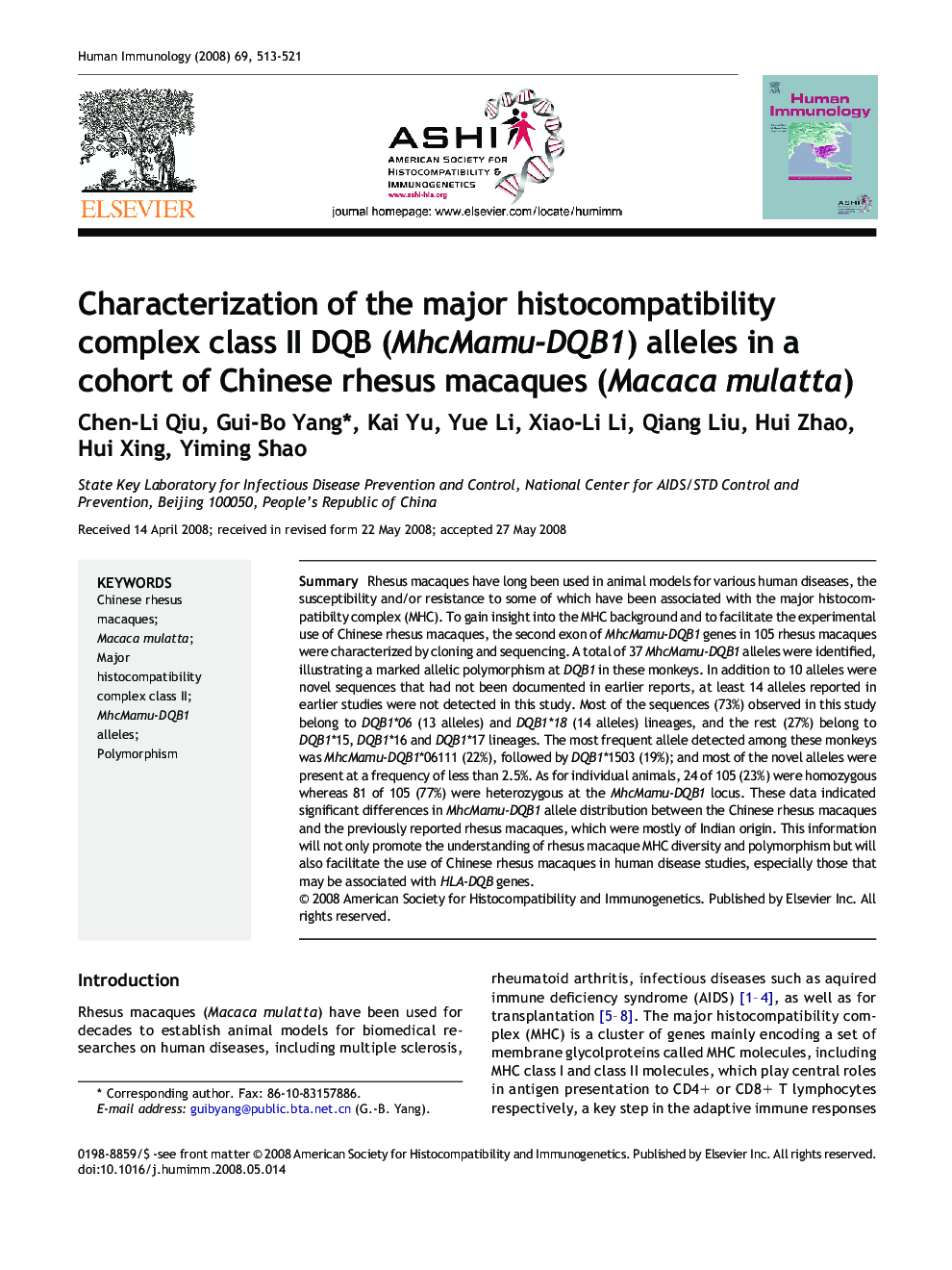| کد مقاله | کد نشریه | سال انتشار | مقاله انگلیسی | نسخه تمام متن |
|---|---|---|---|---|
| 3352047 | 1216453 | 2008 | 9 صفحه PDF | دانلود رایگان |

SummaryRhesus macaques have long been used in animal models for various human diseases, the susceptibility and/or resistance to some of which have been associated with the major histocompatibilty complex (MHC). To gain insight into the MHC background and to facilitate the experimental use of Chinese rhesus macaques, the second exon of MhcMamu-DQB1 genes in 105 rhesus macaques were characterized by cloning and sequencing. A total of 37 MhcMamu-DQB1 alleles were identified, illustrating a marked allelic polymorphism at DQB1 in these monkeys. In addition to 10 alleles were novel sequences that had not been documented in earlier reports, at least 14 alleles reported in earlier studies were not detected in this study. Most of the sequences (73%) observed in this study belong to DQB1*06 (13 alleles) and DQB1*18 (14 alleles) lineages, and the rest (27%) belong to DQB1*15, DQB1*16 and DQB1*17 lineages. The most frequent allele detected among these monkeys was MhcMamu-DQB1*06111 (22%), followed by DQB1*1503 (19%); and most of the novel alleles were present at a frequency of less than 2.5%. As for individual animals, 24 of 105 (23%) were homozygous whereas 81 of 105 (77%) were heterozygous at the MhcMamu-DQB1 locus. These data indicated significant differences in MhcMamu-DQB1 allele distribution between the Chinese rhesus macaques and the previously reported rhesus macaques, which were mostly of Indian origin. This information will not only promote the understanding of rhesus macaque MHC diversity and polymorphism but will also facilitate the use of Chinese rhesus macaques in human disease studies, especially those that may be associated with HLA-DQB genes.
Journal: Human Immunology - Volume 69, Issue 8, August 2008, Pages 513–521